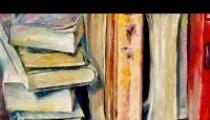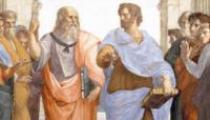Beyond Gay is an autobiographical book which charts the spiritual growth of the author, a formerly active homosexual man and opponent of Christianity who is now a Catholic. Morrison describes how, for a period of years during which he was a self described gay activist and critic of Christians who opposed homosexuality, he continually felt a sense of spiritual emptiness; a sense that, in fact, there was more to life than sex and that the confines of the homosexual sub-culture were limiting his opportunities for other experiences.
A friend suggested prayer as a way of combating the emptiness and from there ensued a long struggle about whether his sex life was in tune with God’s will for him.The works of Dietrich Bonhoeffer and in particular his distinction between ‘cheap grace’ and ‘costly grace’ struck him with great force: costly grace is the ‘treasure hidden in the field, for the sake of which a man will go and sell all his goods......such grace is costly because it calls us to follow and it is grace because it calls us to follow Jesus Christ.’
The resonance of these ideas helped Morrison to embrace Christianity. After seeking baptism into an Anglican communion, he continued living an actively homosexual life, seeking guidance and support from a Christian movement which aimed to encourage homosexual people in their relationships without challenging them to live chastely. This attempt to accommodate his active homosexuality within his newfound faith was a further source of tension. His developing friendships with church members, however, reinforced a growing conviction that Biblical injunctions against homosexuality had to be taken seriously.
Morrison then decided to try chastity. He movingly relates how he breaks this news to his partner and the ensuing lengthy conversations about what they meant to one another. ‘In the end’, Morrison writes, ‘we concluded that our relationship meant far more than what happened in the bedroom.’ To this day Morrison and his friend remain ‘very close friends, ‘akin to brothers.’
At this point Morrison converted to Catholicism. Particularly important to him here was the Church’s teaching on the need to use one’s sexuality in a way that is open to fertility and new life. The Church’s insight, much developed in the writings of Pope John Paul 11, that the essential unity of life and love is nothing less than a reflection of the life-giving and self-giving love of God within the Trinity, proved ultimately irresistible to the author. Morrison’s perception that the Church’s teachings are teachings of love, not coercion, is an important one in a cultural climate that alleges the unreasonableness of Catholic teachings on sexuality. He sees that they represent a liberating education for life based on mystical insights into the nature of love.
One of the most important liberations on Morrison’s spiritual journey was finding the Catholic sacrament of Penance. His belief that through individual confession and absolution sins can be left behind was of enormous benefit to him. It is hard to imagine a more useful book to give to any person today who is struggling with this issue, either personally or in a family context. For those who are not directly touched by homosexuality, the book is also valuable and timely because of the light it sheds on the nature of sexuality - an issue of importance to all, regardless of orientation or marital status. It is a book which underlines the continuing relevance of Catholic wisdom on sexuality in an age when even many Catholics fail to understand this.
Beyond Gay
by David Morrison (Our Sunday Visitor Books, 1999)




